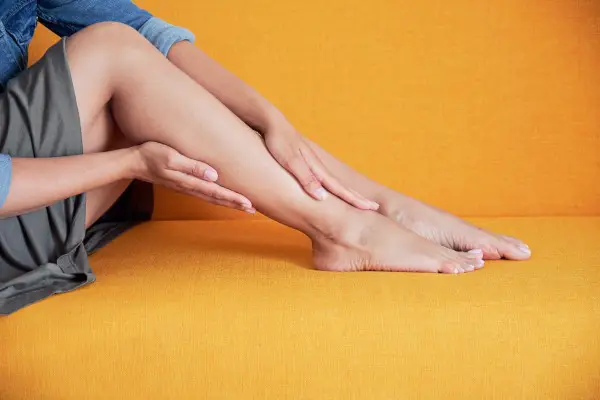Varithena is a minimally invasive procedure designed to treat varicose veins by using prescription medicine injected in the form of a microfoam to close off a non-functioning vein. Primarily used for the treatment of the great saphenous vein system (GSV), Varithena is a non-thermal, non-tumescent treatment option that eliminates varicose veins by injecting an FDA-approved, patented microfoam to seal off the vein, destroying the endothelial cells of the vein in the process.
Designed by Boston Science, Varithena is clinically proven to treat both the physical symptoms and appearance of varicose veins with just one or two minor injections.
Varithena Procedure
Unlike most other minimally invasive varicose vein treatment options, Varithena is completely nonsurgical and requires no incisions in order to complete the procedure. Varithena treatment, when treated by an experienced vein doctor, takes approximately 30-minutes and typically requires one or two needle sticks per vein; clinical trials demonstrate that the procedure is nearly painless, with 96% of patients receiving treatment reporting only minor pain associated with the injection (similar to receiving other types of injections or shots).
Since Varithena does not require an incision, the procedure also does not require local anesthesia. Instead, a small injection of Varithena polidocanol injectable foam 1% is injected to the vein. The microfoam fills and seals off the section of the vein, the vein then safely collapses and the microfoam is diluted into the bloodstream and flushed from the body. After the vein collapses, the blood in the damaged vein shifts to other, healthier veins in the affected area.
Most people are able to return to normal daily activities the same day as receiving Varithena treatment. Like other minimally invasive varicose vein treatments, strenuous exercise should be avoided for at least one week and compression socks should be worn daily for two weeks. Walking for at least 10 to 15-minutes a day for at least a month will support successful recovery.
Varithena treatment for varicose veins is very safe and extremely effective, with most patients only requiring a single treatment; depending on the size and number of veins being treated, additional treatments could be required.
Varithena Cost
Varithena cost depends on the number of veins that need to be treated; in other words, it often depends on how many damaged veins are found in the legs. The cost of Varithena ranges from $1600 for Medicare and HMO insurance and $2000 for PPO insurance per vein treated. These costs will vary based on your deductible and out of pocket expenses owed.
Read This Next
Varithena is a minimally invasive procedure designed to treat varicose veins by using prescription medicine injected in the form of a microfoam to close off a non-functioning...
Read MoreInvasive varicose veins surgery is often considered a last resort for treating severely damaged veins; fortunately there are many types of varicose veins surgery, ranging...
Read MoreUltrasound guided sclerotherapy, or UGS, is a specialized procedure designed to treat and eliminate branch varicose veins located at or just below, the surface of the skin. ...
Read MoreDebbie Middleton’s lower left leg started swelling up. So, she was sent to a vein specialist. Turns out, she had varicose veins. A leaky vein in her leg needed to be closed...
Read More





